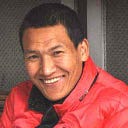Fact Checking in Time of Corona Pandemic
According to the World Health Organisation (WHO) in time of pandemic, audiences have access to information, both accurate and inaccurate, which makes them difficult to get necessary information when needed. This “overabundance of information” is infodemic. Both news media and other organisations are checking claims regarding information related to Covid-19, and are helping audience to seek information based on solid evidences. During this pandemic, two non-governmental organisations in Nepal are checking facts circulating in social media and news media. However, they have few challenges, which they need to overcome to be more effective.
Tradition
Fact checking has a long tradition in news media organisations. It was in the 2004 US election that fact checking became popular. Since then, both news media and other organisations do fact checking regarding claims made during election campaigns and the claims made by news media organisations.
The website dedicated to fact checking was started in Nepal in 2015 only. Panos South Asia started a website, southasiacheck.org, in both Nepali and English in 2015 to strengthen transparency and accountability in public debate. In March 2020, Center for Media Research — Nepal (CMR Nepal) and MySansar collaborated to start www.nepalfactcheck.org. They started to check facts of viral content that circulate in news media and social media about coronavirus.
Since 20 March 2020, South Asia Fact Check paid attention to the pandemic. After this, until 2 June 2020, it published 10 stories, out of which seven are related to Covid-19. The first story checked the few claims circulating on social media such as “gargling with warm water with salt or vinegar cure COVID-19”, and “warm temperature helps reduce the spread of the coronavirus?” The report stated that these claims are not based on evidences. On 21 May 2020, this website also published a story related to eight claims made by Nabin Joshi, a “TU psychologist” regarding the pandemic on the You Tube channel of Himal Online TV uploaded on 14 May 2020. This website found that all claims including wearing masks does not protect from the virus, were wrong.
Nepal Fact Check has published more than 60 stories since 13 March 2020 and among them few are not related to the pandemic. The first story was about a year old photo showing people wearing masks while taking bath in a hot spring in Myagdi that Kantipur daily published on the same day in a news report about the measure taken by Nepali government after WHO declared Covid-19 a pandemic. Though the caption mentioned that wearing the masks became compulsory there, the website revealed that the photo was old one and these people were wearing masks as the water smelled of black salt and Sulfur, not due to the virus.
Similarly, on 22 May 2020 it carried a story on the misinformation related to the government’s decision to allow people to do Polymerase Chain Reaction (PCR) test after paying NRs 15,000. Interestingly during the press meet on 19 May, the spokesperson at the Ministry of Health and Population, Dr. Bikas Devkota informed that the government was planning to allow designated public health institutions to do the test but also told that these institutions would decide the rates later. The website found that on that day the national news agency, RSS prepared a news story related to the press meet and also mentioned that it required a fee of NRs 15,000 to test. This unclear information created confusion and other media interpreted the price as the rate determined by the ministry. The government came under criticism so, on 20 May, the ministry issued a notice discrediting the news.
During pandemic, true and untrue (misleading, wrong) information circulates in mediascape, but both fact checkers have two main challenges. One, there is funding problem especially in case of Nepal Fact Check. Two, they do not have certain mechanism to reach larger audience.
The old one is donor funded while the new one is looking for donors. National Endowment for Democracy and the Open Society Foundation have provided funding to South Asia Check. The latter is also funding it since 2018. Nepal Fact Check, started with seed money from CMR Nepal, is approaching donors for funding. As other business models such as subscribers and crowd-funding are not possible in these countries, donor funding is only the way to operate fact checkers in Nepal. Nevertheless, their donors ‘interests guide activities they fund, which might be a reason that fact checking is only one aspect of South Asia Check. It also does regular study on the use of anonymous sources by broadsheet dailies, monitors promises made by governments, and does reporting on public interest issues.
Another challenge they are facing is a lack of their own mechanism to reach a larger audience. They have even small followers on Facebook: the old one has 4100 and the new one has 960 followers in the social media. Giving due credit any news media can use South Asia Check’s stories, but only HimalKhabar and OnlineKhabar (English) carried the story of “TU psychologist”. Similarly, except MySansar, no other media carried the story related to the PCR test.
Collaboration
Fact checkers are important for democracy as they aim to make society more accountable and in time of pandemic, they help citizens to be aware of what untrue information is and what true information is. However, they do not have their own mechanism to reach a larger audience. One way to overcome this challenge is to collaborate with news media. By doing this they will be able to reach a larger audience, also to use the vast human resource and the network the news media have to check facts related to pandemic. Moreover, both national and international donors/well-wishers need to support them.
Originally published in The Rising Nepal, p. 4.; republished with photos and links.
